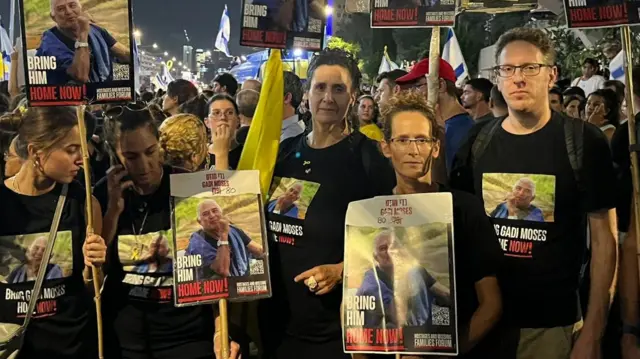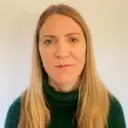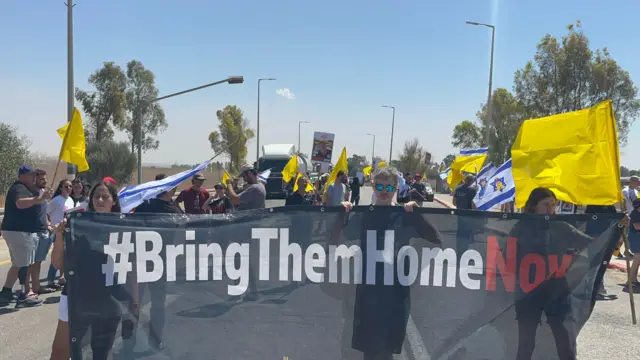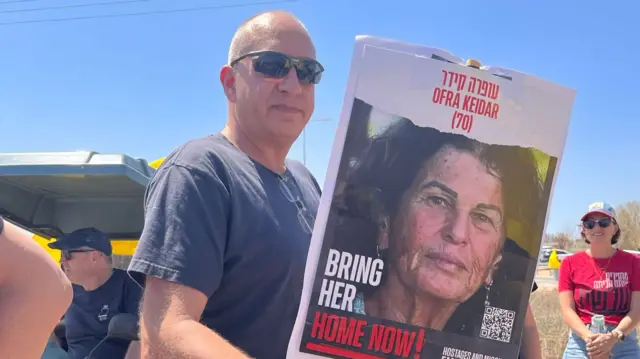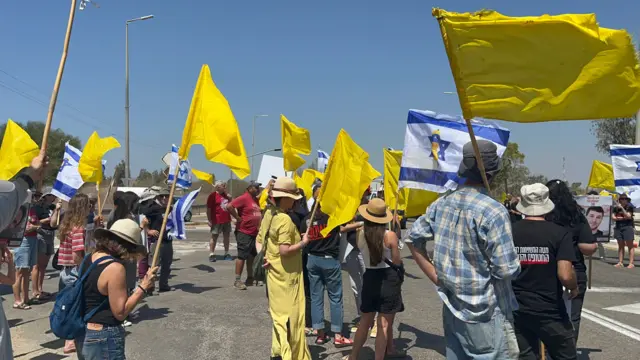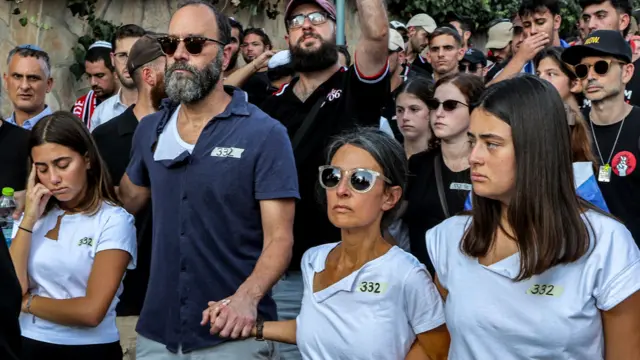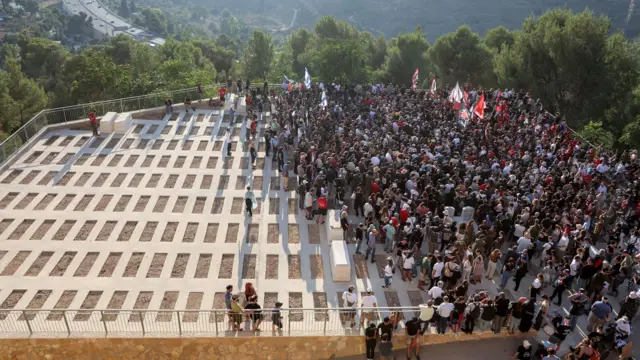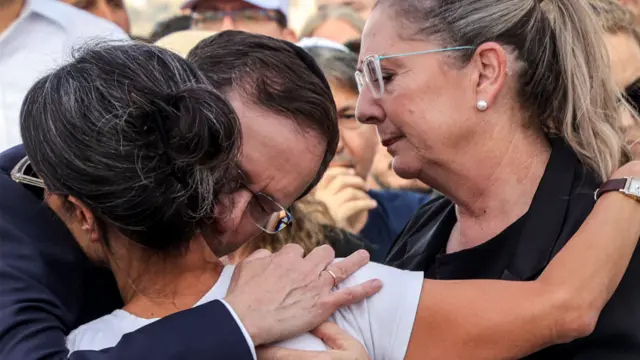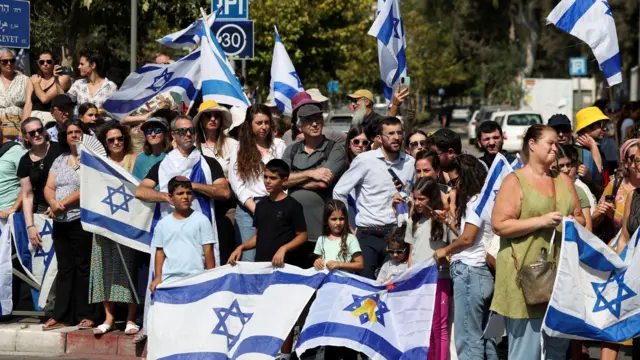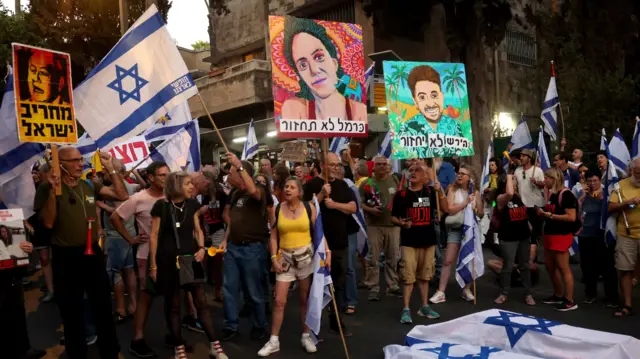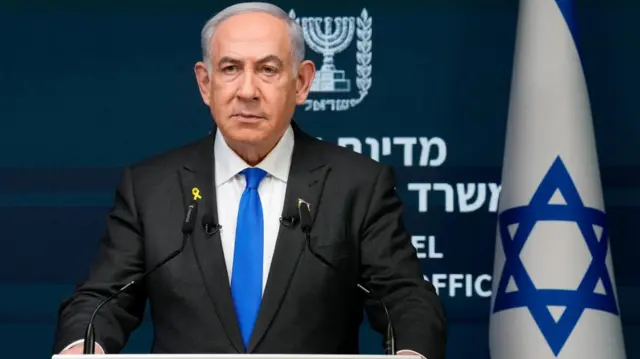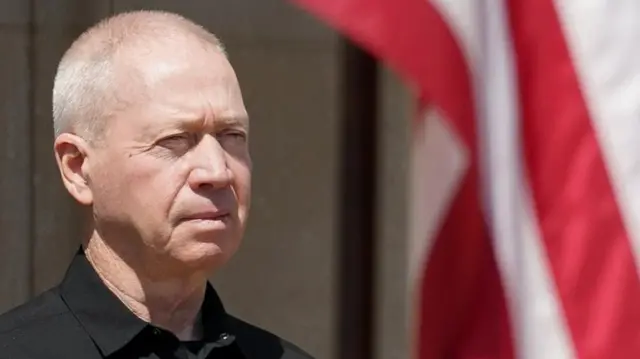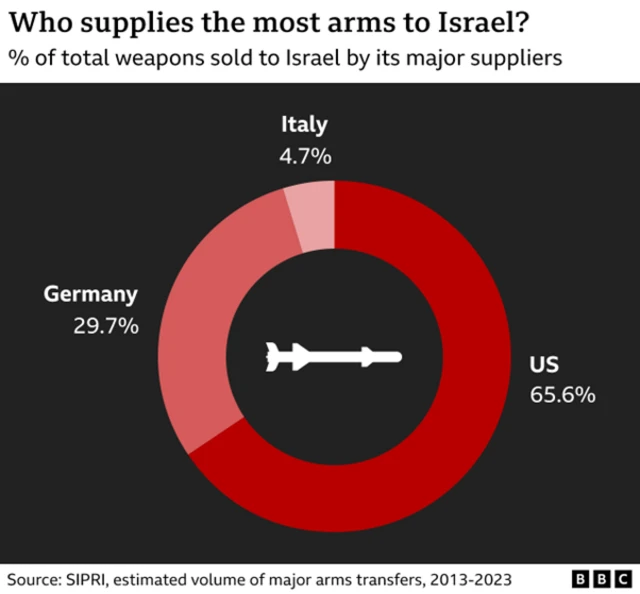Protests in Israel and the UK suspends some arms export licenses - what's happened todaypublished at 20:58 BST 2 September 2024
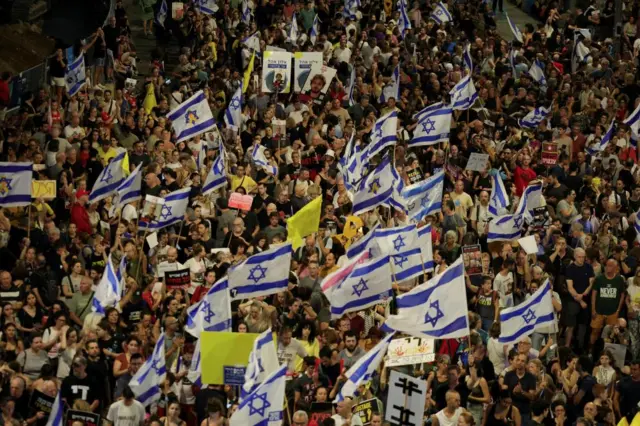 Image source, Reuters
Image source, ReutersBefore we bring our coverage of events in Israel today to a close, let's recap what's been happening today:
- The UK Foreign Secretary David Lammy has said the UK was suspending about 30 arms export licences to Israel, Israel’s foreign minister said this “sent a very problematic message” to Iran
- Israel's Prime Minister Benjamin Netanyahu told the country he was "begging for your forgiveness" during a press conference, for not bringing back alive the six hostages whose bodies were recovered from Gaza on Saturday
- US President Joe Biden says Netanyahu is not doing enough to secure a hostage deal and ceasefire with Hamas
- Protests have been taking place across Israel, including outside Netanyahu's residences in Jerusalem and the town of Caesarea, calling for the government to secure a hostage deal with Hamas


